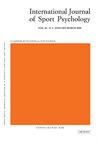Can we hasten expertise by video simulations? Considerations from an ecological psychology perspective
IF 0.6
4区 心理学
Q4 HOSPITALITY, LEISURE, SPORT & TOURISM
引用次数: 17
Abstract
In their 1994 publication, Starkes and Lindley considered whether perceptual skill could be trained through the observation of video simulations of sport situations. We return to this topic 20 years later and provide a critical review of the subsequent research on perceptual learning in sport. We reflect on the implications from recent empirical evidence, which indicates that perceptual expertise in sport is best captured using experimental methods that allow participants to perceive and act (i.e., produce an interceptive action) against an opponent in real-time. Despite the pertinent implications that these findings have for the training of perceptual skill, until now, a review has not been forthcoming. Specifically, we consider the implications of an ecological approach to perceptual learning for training interventions in sport. We provide a critical review of current literature, before focussing on an ecological theory of learning as a framework for our perspective. We then overview two contemporary topics in ecological psychology - continuum of contact and between-participant variability in perception-action - before considering the implications of our perspective for future research.我们能通过视频模拟来加速专家鉴定吗?从生态心理学的角度考虑
在他们1994年的出版物中,Starkes和Lindley考虑了知觉技能是否可以通过观察运动情境的视频模拟来训练。20年后,我们回到这个话题,并对随后的体育感知学习研究进行了批判性的回顾。我们反思了最近的经验证据的含义,这些证据表明,通过实验方法,参与者可以实时感知并采取行动(即产生拦截行动),最好地捕捉到体育运动中的感知专长。尽管这些发现对知觉技能的训练具有相关的含义,但到目前为止,尚未有评论即将到来。具体地说,我们考虑了在运动训练干预中感知学习的生态方法的含义。在关注学习的生态理论作为我们观点的框架之前,我们对当前的文献进行了批判性的回顾。然后,我们概述了生态心理学的两个当代主题——接触的连续性和参与者之间感知-行动的可变性——然后考虑我们的观点对未来研究的影响。
本文章由计算机程序翻译,如有差异,请以英文原文为准。
求助全文
约1分钟内获得全文
求助全文
来源期刊
自引率
12.50%
发文量
0
审稿时长
>12 weeks
期刊介绍:
The International Journal of Sport Psychology publishes empirical and theoretical contributions in the human movement sciences from all over the world. Manuscripts related to psychology, sport pedagogy, exercise and sport performance are suited to the Journal''s scope.
IJSP''s aims are to disseminate results of rigorous and relevant studies, to expose positions and commentaries regarding the development of theory and confirmation or contradiction of previous findings. IJSP entertains various methodologies encompassing coherence among epistemology, research questions, tools, statistical or clinical analyses and discussion or potential applications. Qualitative and quantitative analyses as well as case studies are of interest when appropriately used. IJSP is comprised of the following sections related to human movement sciences:
-Motor learning and control
-Cognition
-Health and exercise
-Social psychology
-Intervention / Clinical / counseling psychology

 求助内容:
求助内容: 应助结果提醒方式:
应助结果提醒方式:


